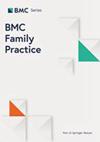Does health literacy influence health-related lifestyle behaviors among specialists of health management? A cross-sectional study
IF 3.2
3区 医学
Q1 MEDICINE, GENERAL & INTERNAL
引用次数: 0
Abstract
Noncommunicable diseases (NCDs), such as health-related lifestyle diseases, are the leading cause of mortality and societal and economic burdens. Poor lifestyle behaviors, which are modifiable to improve health, can cause diseases, including NCDs. Health literacy has been recognized as an important determinant of health, and studies have shown that higher health literacy is associated with better health outcomes and positive health-related behaviors. However, few studies have investigated the association between health literacy and health-related lifestyle behaviors to understand the mechanistic link between them. Thus, this study investigated the extent to which health literacy at different levels influences health-related lifestyle behaviors. A cross-sectional study was conducted among Japanese health management specialists (N = 1,920). Functional, critical, and communicative health literacy were measured. Lifestyle behaviors (exercise, diet and nutrition, sleep, rest, smoking, and alcohol intake), in line with the Japanese National Health Promotion Program, were assessed and calculated into a total cumulative score of health-related lifestyle behaviors. Moreover, we analyzed the associations between the three levels of health literacy and lifestyle behaviors using regression analyses by adjusting for socio-psycho-demographic factors. Multiple linear regression analyses showed a significant association between the Japanese version of the European Health Literacy Survey Questionnaire and total health-related lifestyle scores (standardized β = 0.160, p < 0.001, R2 = 0.136) after adjusting for sociodemographic factors. Similarly, the association between communicative and critical health literacy and the total health-related lifestyle scores was significant (standardized β = 0.122, p < 0.001, R2 = 0.125). The analysis indicated that individuals who had higher level of health literacy (critical and communicative) than functional health literacy (Japanese version of the Newest Vital Sign score) had higher health-related lifestyle behaviors. A higher level of health literacy is associated with health-related lifestyle behaviors. Health literacy can be a target for interventions to achieve the national goal of lifestyle-related disease prevention and control.健康素养是否会影响健康管理专家的健康相关生活方式行为?横断面研究
非传染性疾病(NCDs),如与健康相关的生活方式疾病,是造成死亡以及社会和经济负担的主要原因。不良的生活方式行为可以改善健康,但也可能导致疾病,包括非传染性疾病。健康素养被认为是健康的重要决定因素,研究表明,较高的健康素养与较好的健康结果和积极的健康相关行为相关。然而,很少有研究调查健康素养与健康相关生活方式行为之间的关联,以了解它们之间的机制联系。因此,本研究调查了不同水平的健康素养对健康相关生活方式行为的影响程度。本研究对日本健康管理专家(N = 1,920)进行了横断面研究。研究测量了功能性、关键性和交流性健康素养。根据日本国民健康促进计划,对生活方式行为(运动、饮食和营养、睡眠、休息、吸烟和饮酒)进行了评估,并计算出与健康相关的生活方式行为累积总分。此外,我们还利用回归分析法分析了三个健康素养水平与生活方式行为之间的关联,并对社会心理-人口因素进行了调整。多元线性回归分析表明,在调整社会人口因素后,日文版欧洲健康素养调查问卷与健康相关生活方式总分之间存在显著关联(标准化β=0.160,p < 0.001,R2=0.136)。同样,沟通能力和关键健康素养与健康相关生活方式总分之间的关系也很显著(标准化 β = 0.122,p < 0.001,R2 = 0.125)。分析表明,与功能性健康素养(日文版最新生命体征评分)相比,健康素养(关键性和交流性)水平较高的人,其健康相关生活方式行为较高。健康素养水平越高,与健康相关的生活方式行为就越多。健康素养可作为干预措施的目标,以实现预防和控制与生活方式相关疾病的国家目标。
本文章由计算机程序翻译,如有差异,请以英文原文为准。
求助全文
约1分钟内获得全文
求助全文
来源期刊

BMC Family Practice
医学-医学:内科
CiteScore
3.20
自引率
0.00%
发文量
0
审稿时长
4-8 weeks
期刊介绍:
BMC Family Practice is an open access, peer-reviewed journal that considers articles on all aspects of primary health care research. The journal has a special focus on clinical decision making and management, continuing professional education, service utilization, needs and demand, and the organization and delivery of primary care and care in the community.
 求助内容:
求助内容: 应助结果提醒方式:
应助结果提醒方式:


